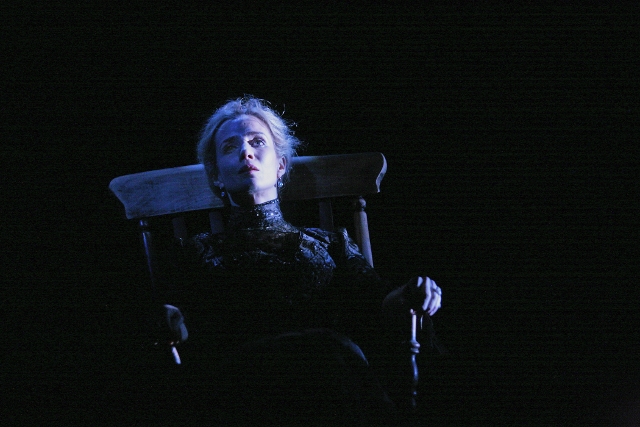Samuel Beckett described Billie Whitelaw’s performance of Not I as miraculous. Now Whitelaw has passed on the baton of this difficult monologue to Lisa Dwan.
We go to see Beckett to be challenged; and director Walter Asmus’s production team does that. The house is in complete darkness for the 55 minutes of the complete trilogy and that is more than disconcerting.
Perceptions are changed: in Not I, we strain to see the tiny mouth, dwarfed by the blackness; the lighting in Footfalls dehumanises May – her top half in shadow; and in Rockaby, Woman in Chair rocks into and out of darkness.
Because of the blackness we see things that are not there – and that is maybe what Beckett wanted us to do: each monologue explores a hidden depth of human nature. Not I is that famous mouth; it is difficult to understand but that’s not the point.
What comes across is the agony of something; deep held and now given release. In Footfalls as a daughter paces outside the room of her dying mother, this is not about loss, but some kind of deep resentment against the mother; Dwan spits out the line ‘it’ – there is some resentment there, against the mother that most complicated of relationships. In Rockaby the poetry of Beckett shines through.
This is Dwan’s show; she has a face that imperceptibly changes emotion and a voice that ranges from a whisper to full-on rant. From the terrifying energy of Mouth, spewing words like her life depended on it, to the steady, metronome-like movement of May in Footfalls to the stillness of Woman in Chair.
These plays are hard work – physically challenging, emotionally draining (for the performer and the audience) – but ultimately awe-inspiring. I felt privileged to see it.



